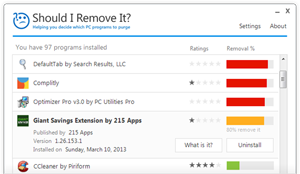Import table
api-ms-win-core-crt-l1-1-0.dll
memcpy, wcstol, _wcsicmp, wcschr, strcpy_s, _vsnprintf_s, memset, _except_handler4_common
api-ms-win-core-crt-l2-1-0.dll
_initterm, _initterm_e, exit
api-ms-win-core-errorhandling-l1-1-0.dll
SetUnhandledExceptionFilter, SetErrorMode, SetLastError, UnhandledExceptionFilter, GetLastError
api-ms-win-core-errorhandling-l1-1-1.dll
GetLastError, SetUnhandledExceptionFilter, SetErrorMode, SetLastError, UnhandledExceptionFilter
api-ms-win-core-handle-l1-1-0.dll
CloseHandle
api-ms-win-core-heap-obsolete-l1-1-0.dll
LocalFree, LocalAlloc
api-ms-win-core-interlocked-l1-1-0.dll
InterlockedCompareExchange, InterlockedExchange
api-ms-win-core-libraryloader-l1-1-0.dll
GetProcAddress, LoadLibraryExW, GetModuleHandleA
api-ms-win-core-libraryloader-l1-1-1.dll
GetProcAddress, LoadLibraryExW
api-ms-win-core-libraryloader-l1-2-0.dll
GetProcAddress, LoadLibraryExW
api-ms-win-core-localregistry-l1-1-0.dll
RegQueryValueExW, RegOpenKeyExW, RegCloseKey
api-ms-win-core-misc-l1-1-0.dll
LocalAlloc, LocalFree, Sleep
api-ms-win-core-processenvironment-l1-1-0.dll
GetEnvironmentVariableW, SetEnvironmentVariableW
api-ms-win-core-processenvironment-l1-2-0.dll
SetEnvironmentVariableW, GetEnvironmentVariableW
api-ms-win-core-processthreads-l1-1-0.dll
OpenProcessToken, GetCurrentProcess, ExitThread, CreateThread, GetCurrentThreadId, GetCurrentProcessId, TerminateProcess
api-ms-win-core-processthreads-l1-1-1.dll
TerminateProcess, GetCurrentThreadId, GetCurrentProcessId, CreateThread, ExitThread, OpenProcessToken, GetCurrentProcess
api-ms-win-core-processthreads-l1-1-2.dll
TerminateProcess, GetCurrentThreadId, GetCurrentProcessId, CreateThread, ExitThread, GetCurrentProcess, OpenProcessToken
api-ms-win-core-profile-l1-1-0.dll
QueryPerformanceCounter
api-ms-win-core-registry-l1-1-0.dll
RegCloseKey, RegQueryValueExW, RegOpenKeyExW, RegEnumKeyExW
api-ms-win-core-synch-l1-1-0.dll
SetEvent, OpenEventW, CreateEventW
api-ms-win-core-synch-l1-2-0.dll
OpenEventW, CreateEventW, SetEvent
api-ms-win-core-sysinfo-l1-1-0.dll
GetSystemTimeAsFileTime, GetTickCount
api-ms-win-core-sysinfo-l1-2-0.dll
GetSystemTimeAsFileTime, GetTickCount
api-ms-win-core-sysinfo-l1-2-1.dll
GetTickCount, GetSystemTimeAsFileTime
api-ms-win-security-base-l1-1-0.dll
GetTokenInformation
api-ms-win-security-base-l1-2-0.dll
GetTokenInformation
msvcrt.dll
DllMain
ntdll.dll
NtCreatePort, NtConnectPort, NtListenPort, NtAcceptConnectPort, NtCompleteConnectPort, NtReplyWaitReceivePort, RtlLengthRequiredSid, RtlInitializeSid, RtlSubAuthoritySid, NtSetSecurityObject, NtOpenEvent, RtlFreeHeap, RtlAllocateHeap, RtlNtStatusToDosError, RtlSetProcessIsCritical, NtSetInformationProcess, RtlInitUnicodeString, NtOpenFile, NtDeviceIoControlFile, NtSetInformationFile, RtlCreateSecurityDescriptor, RtlLengthSid, RtlSetOwnerSecurityDescriptor, RtlCreateAcl, RtlAddAccessAllowedAce, RtlSetDaclSecurityDescriptor, RtlAllocateAndInitializeSid, RtlAddMandatoryAce, RtlSetSaclSecurityDescriptor, RtlMakeSelfRelativeSD, RtlUnhandledExceptionFilter, DbgPrintEx, NtRequestWaitReplyPort, RtlCreateAndSetSD, RtlFreeSid, RtlAcquireResourceShared, RtlReleaseResource, RtlAcquireResourceExclusive, RtlInitializeResource, NtClose
rpcrt4.dll
I_RpcMapWin32Status, RpcServerRegisterIf2, RpcServerListen, RpcServerUseProtseqEpW, NdrServerCall2, RpcServerRegisterIf3
sspisrv.dll
SspiSrvInitialize, SspiSrvClientCallback
Export table
LsaGetInterface
LsaRegisterExtension
LsaRegisterInterface

